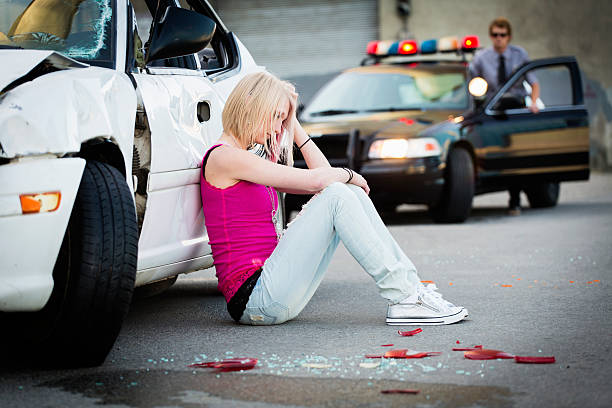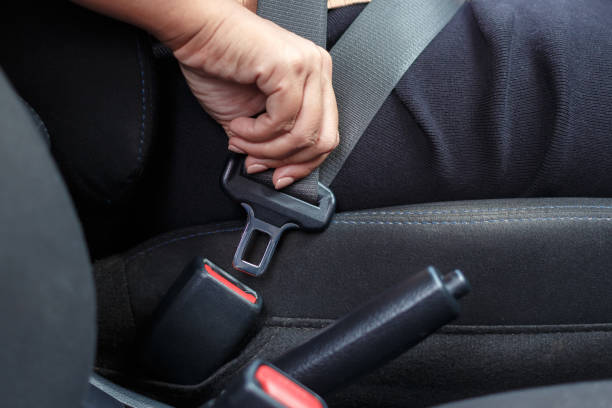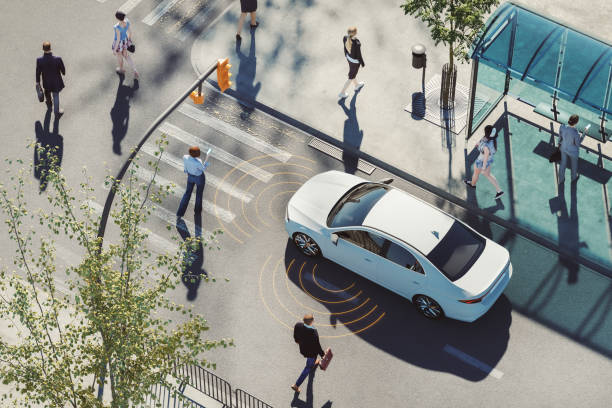Psychological Effects of Car Accidents: Coping Mechanisms and Recovery

While car accidents can have tragic physical effects, the emotional toll is often just as great and lasting. Mental health issues affecting victims There may be a wide range between minor stress on one end of the spectrum to lasting conditions such as post-traumatic-stress-disorder (PTSD) in more severe cases. Recovery requires an awareness of the impact and a healthy way to cope with them. In this guide, you will learn about the psychological aftermath of car accidents (focusing on specific symptoms) and gain strategies for repairment both during denial or in case advance awareness.
The Emotional Toll of Auto Accidents
The scars are physical, and the trauma is psychological. The abruptness and force of a collision will jolt most people far beyond their capacity to process the experience, which leads directly into PTSD territory. One of the post-traumatic conditions that occur after a car accident is known as Post-Traumatic Stress Disorder (PTSD). Flashbacks, nightmares, severe anxiety and uncontrollable thoughts about the accident are some of the symptoms. These symptoms may stick around for months of even years, strongly altering one’s daily way of living.
For a large portion of people post-accident, the rule will be that their anxiety about driving (or even just thinking about it) goes way up. Panic attacks, which are sudden and intense fear often accompanied by physical symptoms like heart palpitations or shortness of breath, similarly plague many prompts. After an accident, a person may suffer from feelings of despair and hopelessness or even sadness lack of interest in the things one used to enjoy doing. Trauma, physical injuries and the disruption of life/routine can lead to depression.
People with fear of driving or riding in a car often have another anxiety disorder, agoraphobia. The result is that these phobias can immobilise rendering drivers incapable of driving again. Severe accidents survivors often have nightmares and insomnia. It can make it difficult to fall asleep, and staying stopped with the stress and anxiety of the accident will introduce chronic sleep problems.
Coping mechanisms for psychological recovery
Healing from the psychological fallout of an accident is a complex process that may require support from qualified professionals, self-care practices and care out weighed by those close to you. One of the most crucial steps in recovery is seeking help from mental health professionals. Therapist, psychologist and psychiatrist are equipped to give personalized plans which could comprise talk treatment including CBT along with drugs or exposure remedy. For example talking with a therapist who employs CBT can help change that negative thought pattern and create tools for coping.
This is where entering a support group may be really helpful. Share your experience with others who were exposed to the same trauma, and you will be relieved when feelings of isolation reduce. These groups provide a safe space to discuss fears, anxieties and where you are at in your recovery. In the case of stress and anxiety, one can make use of practices such as mindfulness, meditation or simple deep breathing exercises. These tricks help you relax and alleviate severity of panic attacks along with other anxiety-related symptoms.
Exercise class situation in terms of mental fitness Exercise releases endorphins – natural, feel-good hormones. Physical activity can ease the symptoms of depression and anxiety, make you feel better, improve your well being. Have a daily routine (such as the Cosmic Routine) for some consistency and control. There is no more chaotic an experience than trauma, and a little structure can go along way toward balance.
There are some things that anyone can do to better our mental health, no matter what challenge somebody we know or heard about is going through: eat well; sleep enough and; avoid alcohol or drugs. During recovery, avoid substance abuse as it can exacerbate symptoms of anxiety and depression.
The Role of Family and Friends
Bridgett explains that it is crucial to get the support of close family and friends as she starts her recovery process. Family can offer the care, support and motivation You never know, just being someone there to hear them can make all the difference. It is so important for us to hear and understand the survivor, feel without judgment what they have gone through. Assisting with day-to-day tasks like getting groceries or handling trip to the doctor can reduce some stress on the survivor. This practical aid lightens their load and help them to concentrate on getting better.
More of your friends and family can get involved in persuading the survivor to visit a mental health expert if they are reluctant. These are supportive actions like attending appointments with them or helping them find the right therapist. Healing from a psychological trauma is not an overnight miracle. Friends and family should also understand how to be patient, knowing that progress will move slowly at times with a possibility of falling back into depression.
Recovery and Prevention Over the Long Term
In many cases, long-term recovery from the psychological effects of a car accident entails ongoing therapy and support. She recommends regular check-ins with mental health care providers and maintaining constant vigilance over one’s own mental and emotional state. This knowledge can arm individuals and their families with awareness of psychological car accident injuries so that they know how to recognize potential symptoms as soon as possible, get appropriate help (which might be the difference between a full recovery or serious long term consequences).
The best strategy is, of course to avoid accidents altogether. For example, they can lessen the potential of an accident to occur by abstaining from unsafe driving such as distracted driving distraction, maintain speed limits and not drunk drive. The stress of accidents can be lessened, and all you need is to have a plan for emergencies. Understanding what to do in the moments after an accident can make you feel like you have some control back and help reduce stress levels.
As a Final Consideration
The emotional impact of an auto accident can have a tremendous ongoing effect, negatively impacting the life of any Auto Accident Survivor. But, coping strategies and professional advice can make a difference with treatment, as well as the help of family and friends. Identifying and effectively treating mental health conditions, as well creating a supportive atmosphere for healing is vital encouraged. Individuals can more effectively deal with the aftermath of car accidents and restore emotional resilience by treating mental health as a priority and practicing preventive steps to work towards an improved, emotionally stable future.












Post Comment